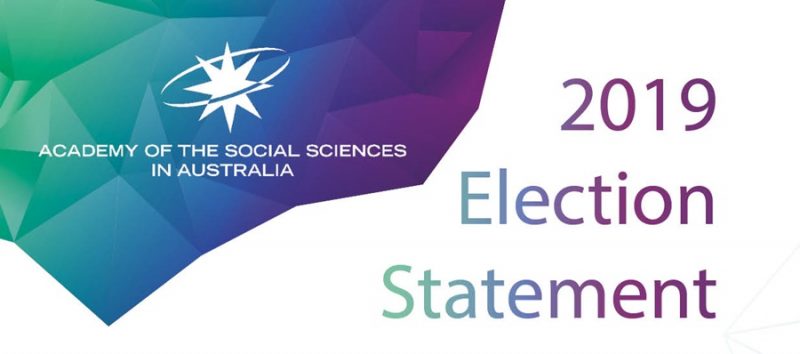
Australia must prepare today for tomorrow’s challenges – from
climate change and social well-being to technological adaptation
and an evolving economy. For policymakers to do this, they must
have consistent access to the best research and knowledge from
the social sciences in addition to that from the humanities and
arts (HASS), as well as science, technology, engineering, and
maths (STEM).
Historically, Australia’s policymakers have done this very successfully, using social science research in the development and implementation of some of Australia’s great programs – including compulsory superannuation, HECS, parental support systems, Medicare, crime prevention, disability support, and the immigration points system. This is to name only a few social science innovations which have contributed greatly to the prosperity of the nation.
The Academy of the Social Sciences in Australia calls on the next Government of Australia to redouble its commitment to support the social science research which underpins policy development, and the connection of research with policymakers.
We have identified five steps to further these aims.
- Increase overall research investment by committing to clear steps towards lifting Australian research and development investment from its current low rate of 1.88% of GDP to match the OECD average of 2.4% by 2025, with the longer-term specific goal of reaching the current OECD best practice frontier of 3% by 2030.
- Implement an income-contingent loan scheme for university-business research and development partnerships.
- Support and develop integrated Humanities, Arts and Social Sciences data platforms with effective and supported researcher access, and comprehensive legal and ethical research training.
- Restore all funds cut from the Research Support Program and commit to a robust long-term framework for research funding, in order to protect the university ecosystem from external disruption and enable it to focus internally on producing its best and most innovative research.
- Examine the best methods for demonstrating the social and economic benefits of innovation and develop a full public value metric for use in research funding administration.
Download the full ASSA 2019 Election Statement Final for more detail on the Academy’s policy suggestions.
Enquiries can be directed to Liz West (Acting Executive Director) – secretariat@socialsciences.org.au
—————————————————–
Where do the other Learned Academies stand?
Australian Academy of the Humanities – https://www.humanities.org.au/2019/05/01/our-8-point-plan-to-humanise-the-future/
Academy of Technology and Engineering – https://www.applied.org.au/news-and-events/article/2019-federal-election-science-and-technology-priorities/
Australian Academy of Science – https://www.science.org.au/files/userfiles/support/position-statements/2019-federal-election-statement-austacademyscience.pdf
Australian Academy of Health and Medical Sciences – https://aahms.org/wp-content/uploads/2019/01/AAHMS-pre-election-statement-summary-February-2019.pdf